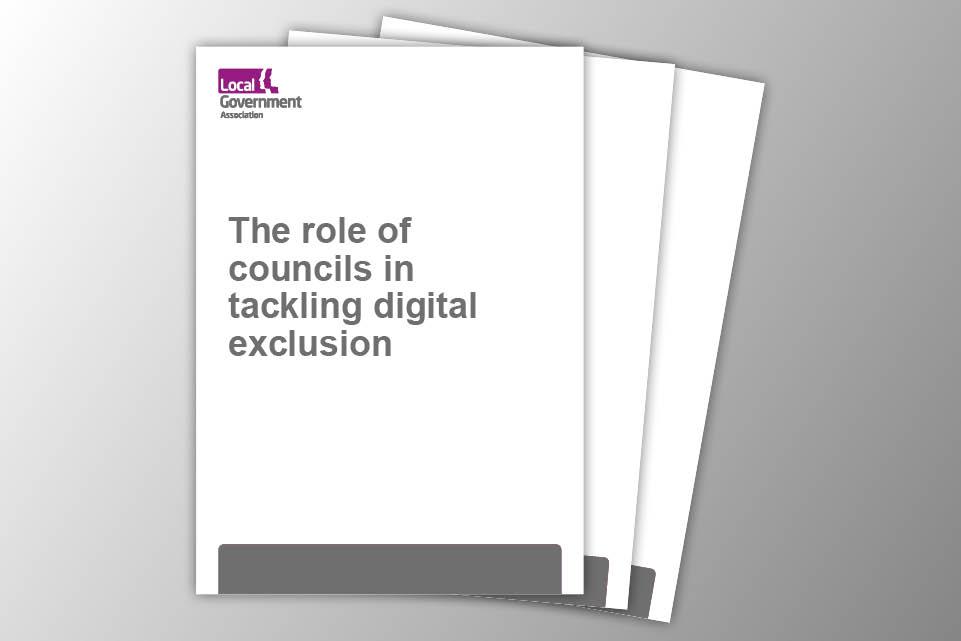Helen Milner, Group CEO at Good Things Foundation has written an opinion piece about the report the LGA commissioned DMS Research and Consulting to produce. The report explores the links between various types of disadvantage and the availability and usage of digital infrastructure, and considers the role of councils in tackling digital exclusion.
The COVID-19 pandemic showed the indisputable importance of digital inclusion, as more and more aspects of our lives moved online. As a result, the digital divide was more urgently addressed - in 2021, for example, there was a notable reduction in the number of UK households with no internet access thanks to action on the issue (Lloyds Bank, 2021).
However, this progress has subsequently stagnated, and millions are still left behind. As technology continues to rapidly advance, the divide – although narrowed – has deepened. This requires action on every level, of all varieties, to ensure no one is left behind. A recent report by the Local Government Association (LGA), titled 'The role of councils in tackling digital exclusion,' is a significant step in local government action to address the digital divide. The report presents a rich, mixed-method analysis showing the changing nature of the digital divide in the UK, uncovering both age-old aspects of digital exclusion and the more nuanced divisions that exist in today's society, as well as recommendations for change.
What’s especially striking for me in the report’s findings are the differences between upload and download speeds in the urban and rural areas in the UK - demonstrating the more intricate differences in people’s digital experience. The report discusses how urban areas have faster download speeds, compared to rural (averaging at 53.2 Mbps vs. 32.1 Mbps) and likewise, the fastest upload speeds are recorded in urban areas in contrast to rural (averaging at 13.8 Mbps vs. 6.6 Mbps). This disparity is particularly problematic for those in rural areas, where slow speeds can significantly impact the ability to work, study, and access essential services online.
Similarly, the particularities of digital experience is made evident in the report’s findings around deprived areas - which tend to have the lowest penetration of fixed broadband (15 percentage points lower in the most deprived areas than in the least, but these areas tend to use their broadband lines more heavily (average monthly data usage is 46 per cent higher in the most deprived areas than in the least deprived).
Before, being online may have been more convenient, now it’s a matter of equity and access to opportunities. Those subsidised infrastructure initiatives are brilliant in 'levelling the playing field' for rural areas as described in the report, and we should continue working towards more affordable connectivity for deprived communities and those experiencing data poverty - yet, we need to be pushing the needle from every level.
Being online has really never before been so vital. In 2020, Good Things Foundation expanded our focus from digital skills, as COVID-19 lockdowns showed that personal internet connectivity and access to a device was fundamental in addressing digital exclusion alongside the digital skills support to keep people safe and confident online. We have permanently shifted our model as a result, launching the National Databank – like a food bank but for mobile connectivity data – and more recently marking the opening of the 1,000th Databank in the UK. Alongside this, we are continuing to build our National Device Bank with a goal of distributing over 100,000 refurbished devices, loaded with free data, to people who need them in the next three years.
The LGA report is a crucial reminder of the role that local governments can play in addressing digital exclusion. As they are intimately familiar with the needs and challenges of their communities, they are well-positioned to ensure that everybody has access to the internet, the devices necessary, and the digital skills they need to succeed in today's world.
The report offers several recommendations for councils – and others – to help play a part, including leadership and a new framework on digital inclusion at the national level; developing mechanisms for more effective cross-department coordination; and facilitating the sharing of lessons learned between councils. I look forward to seeing these recommendations come to life, and working with government and organisations of all varieties to create impact at scale and fix the digital divide - for good.
Helen Milner
Group CEO at Good Things Foundation
[email protected]

